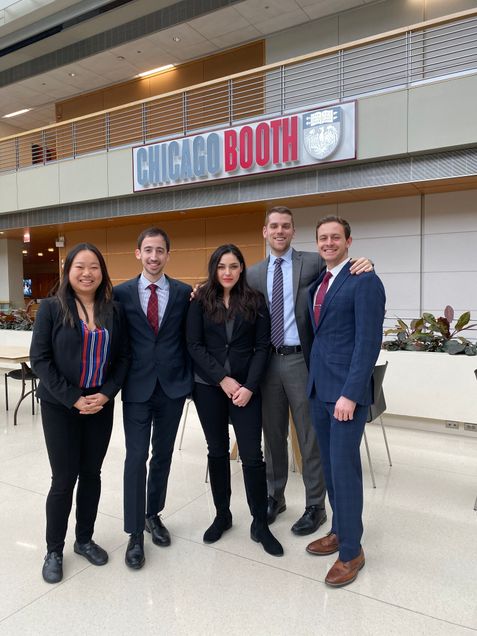Students Take On the Business of Tissue Engineering
CELL-MET research takes first steps into commercialization
By Liz Sheeley

Although there are hundreds of university spin-off companies, the vast majority of them are founded by professors aiming to bring their technology or ideas to the market. Graduate students often don’t have the space or resources to build a company based on their research, even if their research could be commercialized.
When graduate students Josh Javor (ME), Christos Michas (BME) and Jenny Sun (EE) heard about the Tissue Engineering and Regenerative Medicine International Society (TERMIS) Business Plan Competition, they wanted to team up and explore what building a spin-off company from their research would be like. In the end, their team placed second overall in the competition, which was held in Orlando, Florida in December.
Their company, CardioMetry, is a platform designed for drug developers and researchers to quickly and accurately test their products. Instead of selling a physical product for researchers to purchase, the team decided to market a comprehensive screening platform that would deliver analysis of drug performance, toxicity and more, all related to cardiovascular tissue.
They teamed up with colleagues from the University of Michigan who they were already doing research under the same $20 million grant from the National Science Foundation known as CELL-MET, which was awarded in 2018. CELL-MET is a multi-institutional Engineering Research Center based at Boston University with the goal of synthesizing personalized heart tissue for clinical use. Javor, Michas, Sun, Ayse Muniz and Ben Swanson from the University of Michigan, all work toward this one goal through their research, but have different backgrounds.
The CELL-MET Industrial Liaison Officer/Innovation Ecosystem Leader Tom Dudley brought the competition to the students’ attention.
“The students got together and had to create a product plan, marketing plan, discover an unmet need, figure out how to address the unmet need,” says Dudley. “It was a lot of work to create their business plan, all work they did outside of their normal requirements.”
The first step was to submit their business plan to TERMIS, which was then judged and the top three submissions would then give final presentations at the competition in Orlando. Throughout the process, the teams were able to get feedback from mentors within the tissue engineering industry, helping them refine and create their final presentation.
“The CELL-MET grant provides a good ecosystem to grow types of research that can be used in industry and applied to companies,” says Javor. “One reason I wanted to take this on was that it was a new learning experience for me. Usually I’m focused on the technical aspects of the work, but I was able to learn about the business perspective, and how to create a marketable, packaged product.”
The team is continuing to build refine and build their company—this past weekend month they competed in as regional finalists at TigerLaunch, the nation’s largest student-run entrepreneurship competition, which is sponsored by the Princeton Entrepreneurship Club. Prizes include $35,000 to invest in their business along with mentorship opportunities with venture capitalists and industry professionals. They came away as finalists, and will move on to the next round held at Princeton University on April 4.